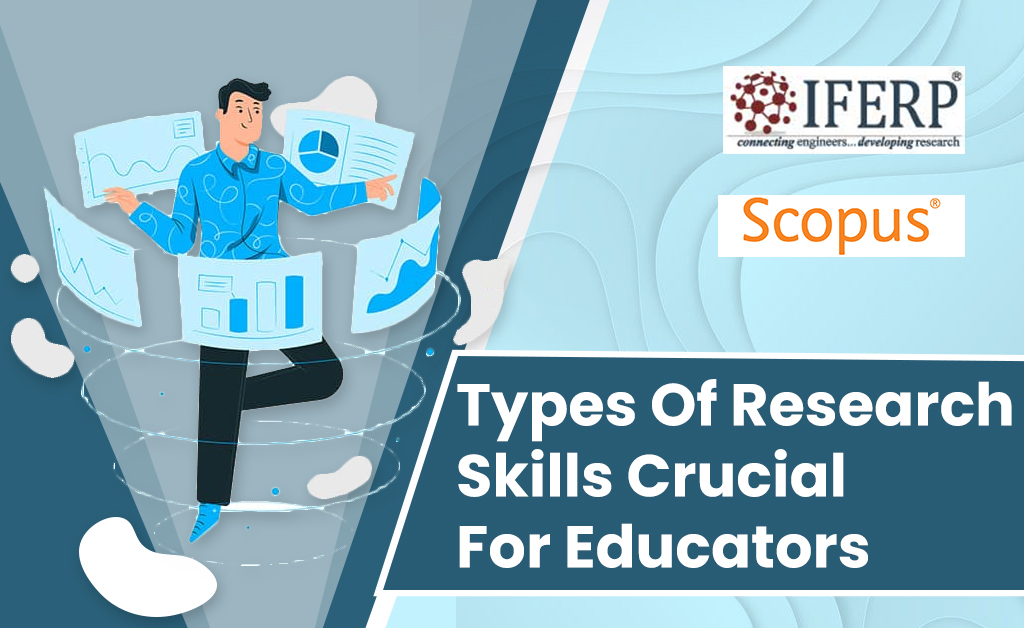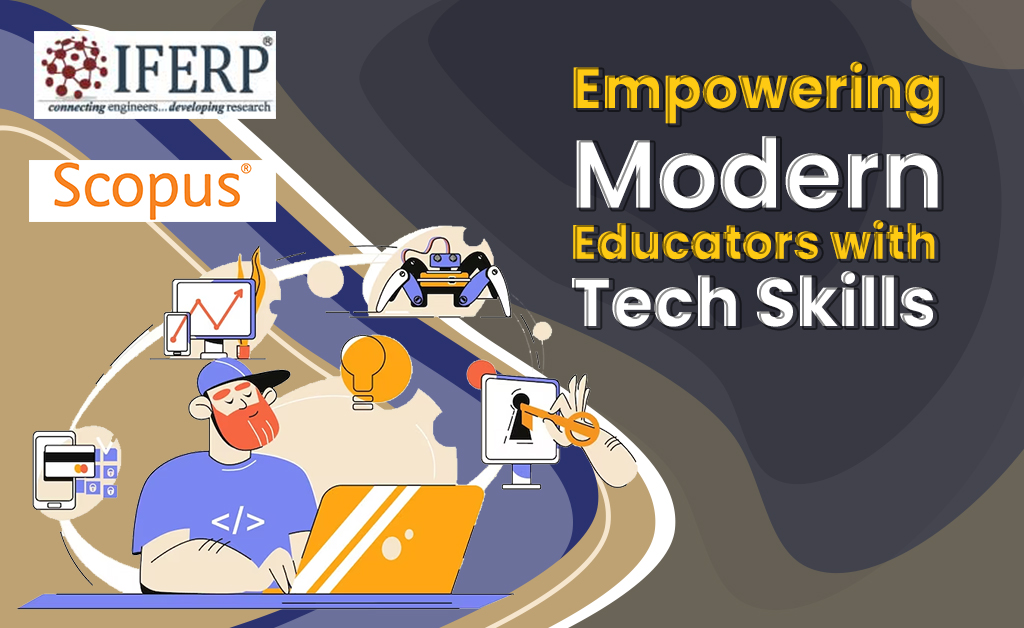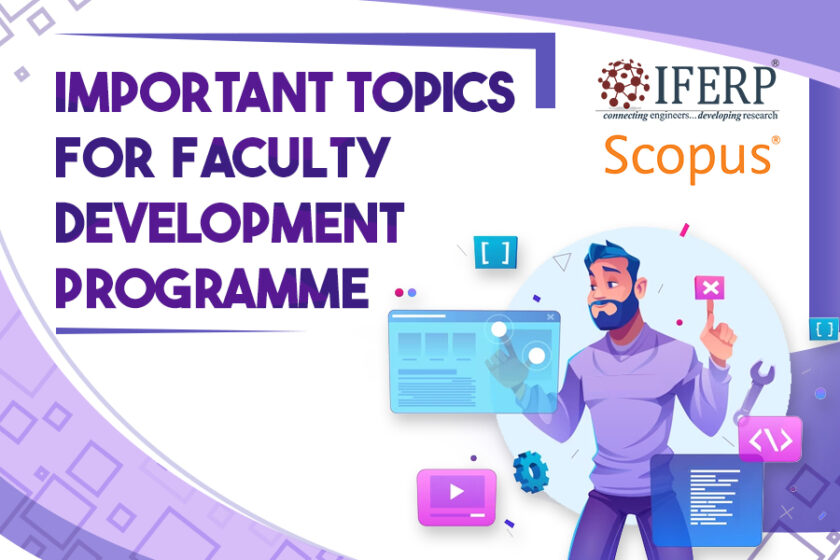Faculty development programs play a crucial role in enhancing the skills and expertise of educators, ultimately improving the quality of education. To ensure their effectiveness, it is imperative to identify and focus on key topics that address the most pressing needs and challenges faced by today’s educators. The following are some essential topics that anyone wondering how to implement a faculty development program should focus on.
- Topic #1
Understanding Why Research Skill Development Is So Vital
- Research skills are essential for educators as they enable them to stay up-to-date with the latest developments in their fields, evaluate the effectiveness of their teaching methods, and foster a culture of inquiry and innovation in their classrooms.
- By honing their research skills, educators can create evidence-based instructional strategies, promote critical thinking among students, and contribute to the academic community through publications and conference presentations.

- Types Of Research Skills Crucial For Educators
- Information Literacy
- Educators must be able to locate, evaluate, and use information effectively.
- This skill helps them design curricula that incorporate the latest findings and resources, and encourages students to think critically about the knowledge they are provided with.
- Data Analysis
- The capacity to gather, analyze, and decode data is essential for educators to assess the impact of their teaching methods, identify areas for improvement, and make data-driven decisions.
- Problem-Solving
- Research often involves solving complex problems, which requires educators to think critically and creatively.
- This skill is invaluable in addressing the diverse needs of students and adapting teaching strategies accordingly.
- Communication
- Effective communication of research findings is necessary for educators to share their insights with colleagues, students, and the broader academic community.
- This skill encompasses both written and oral communication, such as publishing articles, presenting at conferences, and engaging in classroom discussions.
- How Faculty Exchange Programs Enhance Research Skills
- Faculty exchange programs facilitate collaboration between educators from different institutions, fostering the development of research skills through exposure to new perspectives, methods, and resources.
- These programs often involve –
- Joint Research Projects
- Educators collaborate on research projects, which enables them to learn from each other’s expertise and enhance their research skills.
- Research and publication guidance is something that many educators looking to publish their research will avail of at such programs.
- Workshops & Seminars
- Faculty members participate in workshops and seminars, where they gain insights into the latest research methods, tools, and best practices in their fields.
- Access To Resources
- Exchange participants gain access to the host institution’s research resources, such as libraries, laboratories, and databases, expanding their research opportunities and skillset.
- Benefits of Faculty Exchange Programs for Research Skill Development
- Networking
- Educators build professional connections with colleagues from different institutions, fostering collaboration and knowledge sharing.
- Cross-Cultural Learning
- Exchange programs expose educators to diverse educational systems and cultural perspectives, enriching their understanding of global research practices and broadening their horizons.
- Enhanced Teaching Practices
- The research skills developed through faculty exchange programs directly translate to improved teaching practices, as educators apply their newfound knowledge and expertise to their classrooms.
- Career Advancement
- Participation in faculty exchange programs signals an educator’s commitment to continuous learning and professional growth, which can lead to career advancement opportunities.
- Abstract submission guidance can also be availed of at the best faculty development programs.
- Topic #2
Gaining Mastery Over The Art Of Keeping Students Engaged
- Student engagement is a vital component of effective learning, as it fosters a positive learning environment and motivates students to actively participate in their education.
- Engaged students are more likely to comprehend and retain information, develop critical thinking skills, and achieve academic success.
- As such, it is crucial for educators to master student engagement techniques to promote the overall development and well-being of their students.
- Most Prominent Student Engagement Techniques
- Active Learning
Encourage students to take part actively in their learning process through hands-on activities, group discussions, and problem-solving tasks.
- Collaborative Learning
Foster collaboration and teamwork by assigning group projects, organizing debates, or facilitating peer-to-peer feedback sessions.
- Differentiated Instruction
Adapt teaching methods to accommodate diverse learning styles and needs, ensuring that all students can engage with the material.
- Real-World Connections
Link course content to real-world situations and current events, making it more relevant and relatable for students.
- Technology Integration
Leverage technology to create interactive and dynamic learning experiences, such as using educational apps, multimedia presentations, or online discussion forums.
- How Faculty Exchange Programs Help Educators Gain Mastery Over Student Engagement Techniques
- Faculty exchange programs facilitate the sharing of knowledge and expertise among educators from different institutions, providing opportunities to learn and adopt new student engagement techniques.
- These programs often include –
- Observations & Shadowing
Educators observe teaching practices at the host institution, gaining insights into innovative student engagement techniques and strategies.
- Workshops & Seminars
Participants attend workshops and seminars focused on student engagement, learning from experienced educators and subject-matter experts.
- Collaborative Projects
Faculty members collaborate on projects aimed at improving student engagement, enabling them to learn from each other’s experiences and approaches.
- Topic #3
Tech Savviness & How It’s An Essential For Modern Educators
- The Essentiality of Tech-Savviness for Modern Educators
- Meeting The Needs Of The Digital Generation
- Today’s students have grown up in a digital environment, where technology is a fundamental aspect of their daily lives.
- To successfully engage and educate these learners, educators must be tech-savvy and proficient in using various digital tools.
- Integrating technology in the classroom not only supports diverse learning styles but also fosters creativity and critical thinking.
- By adapting to the digital generation’s needs, tech-savvy educators can provide a more engaging and relevant educational experience for their students.
- Enhancing Teaching Methods Through Technology
- Technology can transform traditional teaching methods, making them more effective and engaging.
- By incorporating digital tools, educators can create multimedia presentations, interactive lessons, and simulations that encourage active learning.
- Technology also facilitates real-time feedback, allowing teachers to identify gaps in understanding and tailor their instruction accordingly.
- As a result, tech-savvy educators are better equipped to create dynamic learning environments that cater to individual students’ needs.
- Check out this list of faculty development programs to find an upcoming program and register for it.
- Expanding Access To Educational Resources
- The internet is a vast repository of educational resources, including open-source textbooks, video lectures, and interactive learning platforms.
- Tech-savvy educators can leverage these resources to supplement their instruction and provide students with diverse perspectives on a given topic.
- By curating and integrating high-quality digital materials into their lessons, teachers can promote a deeper understanding of the subject matter while reducing the financial burden of traditional textbooks.
- Fostering Global Connections
- Being tech-savvy enables educators to connect with colleagues and students worldwide, promoting global collaboration and the exchange of ideas.
- Teachers can use social media platforms, professional networks, and video conferencing tools to engage in discussions, share resources, and participate in professional development opportunities.
- Likewise, students can collaborate with peers from different countries, gaining valuable insights into diverse cultures and perspectives.
- These global connections enrich the learning experience and prepare students to be active participants in an increasingly interconnected world.
- Choosing the best upcoming faculty development program is the key to actually gaining this benefit.
- Preparing Students for the Future Workforce
- As the job market evolves, technology and digital literacy become crucial skills for career success.
- Tech-savvy educators play a vital role in preparing students for the workforce by integrating technology into the curriculum and teaching digital literacy skills.
- By providing hands-on experiences with various digital tools and platforms, teachers help students develop the necessary skills to navigate and excel in a technology-driven world.
- Supporting Differentiated Instruction
- Technology can help educators personalize instruction for each student, catering to their unique strengths, needs, and learning preferences.
- Tech-savvy teachers can employ adaptive learning platforms, which use algorithms to identify students’ knowledge gaps and provide targeted practice activities.
- Additionally, digital tools enable educators to offer a variety of instructional materials, such as videos, games, and interactive simulations, to support diverse learning modalities.
- By leveraging technology for differentiated instruction, educators can create more inclusive learning environments that promote academic success for all students.
Being tech-savvy is no longer an optional skill for educators. It is essential for meeting the needs of the digital generation, enhancing teaching methods, expanding access to educational resources, fostering global connections, preparing students for the future workforce, and supporting differentiated instruction. By embracing technology and honing their digital skills, educators can create dynamic learning environments that empower students to succeed in the 21st century.
- Essential Skills for Tech-Savvy Modern Educators
- Digital Literacy & Fluency
- Digital literacy is the ability to find, evaluate, create, and share information using various digital tools and platforms.
- Tech-savvy educators should be proficient in using multiple devices, such as computers, tablets, and smartphones, and have a strong understanding of operating systems, applications, and software.
- They should also be fluent in various digital languages, such as HTML, CSS, and programming languages, to better incorporate technology into their teaching practices.
- Online Collaboration & Communication
- Effective online communication and collaboration skills are crucial for modern educators.
- They must be adept at using various communication tools, such as email, video conferencing, and instant messaging, to facilitate meaningful discussions and collaboration with students, colleagues, and other stakeholders.
- Additionally, educators should be comfortable using collaboration platforms like Google Workspace, Microsoft Teams, and project management tools to organize, share, and manage educational resources, assignments, and projects.
- Learning Management Systems (LMS) Mastery
- An LMS is a software application that facilitates the management, documentation, keeping track of, reporting, and delivery of educational materials and resources.
- Tech-savvy educators should be proficient in using popular LMS platforms, such as Canvas, Blackboard, and Moodle, to create and manage digital classrooms, distribute course materials, assess student performance, and provide timely feedback.
- Familiarity with LMS features and functionalities can greatly enhance the online learning experience for both educators and students.
- Content Creation & Curation
- Tech-savvy educators should possess the skills to create and curate high-quality digital content to engage and motivate their students.
- This includes the ability to produce multimedia presentations, interactive lessons, and engaging videos, as well as to design visually appealing graphics, infographics, and other visual aids.
- Educators should also be adept at curating relevant digital resources, such as articles, videos, and podcasts, to supplement their instruction and provide diverse perspectives on a given topic.
- Data-Driven Instruction & Assessment
- Data-driven instruction involves analyzing student data to inform teaching practices and improve student outcomes.
- Tech-savvy educators should be skilled at using digital tools and platforms to collect, analyze, and interpret student data.
- They should be able to create and administer online assessments, track student progress, and use data visualization tools to identify trends, gaps, and areas of improvement.
- By incorporating data-driven instruction, educators can make informed decisions about their teaching strategies and provide targeted support to their students.
- Online Safety & Digital Citizenship
- Online safety and digital citizenship are essential aspects of a tech-savvy educator’s skillset.
- Educators must be knowledgeable about potential online threats, such as cyberbullying, identity theft, and privacy breaches, and be able to teach students how to protect themselves in the digital world.
- Additionally, they should model and promote responsible digital citizenship by encouraging ethical online behavior, respecting intellectual property, and fostering a positive digital footprint.
- Adaptability & Continuous Learning
- The rapid evolution of technology necessitates that educators continually update their skills and stay informed about the latest digital tools and trends.
- Tech-savvy educators should demonstrate adaptability and a growth mindset by embracing new technologies, participating in professional development opportunities, and seeking out resources to expand their digital skills.
- By fostering a culture of continuous learning, educators can ensure they remain effective and relevant in an ever-changing digital landscape.

- Faculty Development Programs: Empowering Modern Educators with Tech Skills
- Understanding Faculty Development Programs
- Faculty development programs (FDPs) are specialized training initiatives designed to enhance educators’ skills and knowledge in various domains, including technology.
- These programs provide an environment for continuous learning, collaboration, and improvement.
- By offering workshops, seminars, and online courses, FDPs equip teachers with the necessary tech skills to become proficient and tech-savvy professionals.
- Adapting To The Digital Landscape
- The Digital Age has transformed the way education is delivered, demanding educators to possess advanced tech skills.
- Any FDP worth its salt is essentially a skill development programme for teachers to adapt to the digital landscape by introducing them to the latest technologies and tools. These programs focus on –
- Digital Literacy
Educators learn about digital devices, software, and online platforms that are vital for effective teaching and communication in today’s classrooms.
- Cybersecurity
Teachers become aware of the importance of data privacy and security, learning how to protect themselves and their students from potential threats.
- Virtual Classroom Management
Faculty members gain insights into efficient online classroom management techniques, ensuring a seamless learning experience for students.
- Integrating Technology in Teaching
- FDPs train educators to effectively integrate technology into their teaching practices.
- They learn about –
- Learning Management Systems (LMS)
Teachers discover how to use LMS platforms like Canvas, Blackboard, and Moodle for course management, assignments, and assessments.
- Interactive Learning Tools
FDPs introduce educators to various interactive tools like Kahoot!, Quizlet, and Padlet, which enhance student engagement and comprehension.
- Augmented and Virtual Reality
Educators explore AR and VR technologies, understanding how to incorporate them into lessons to provide immersive and experiential learning experiences.
- Enhancing Communication and Collaboration
- Faculty development programs emphasize the importance of effective communication and collaboration in the digital age.
- Through FDPs, educators learn to –
- Utilize Video Conferencing Tools
- Teachers become proficient in using tools like Zoom, Google Meet, and Microsoft Teams to conduct online classes, meetings, and webinars.
- Foster Online Collaboration
- Educators discover strategies for encouraging collaboration among students using platforms like Google Workspace and Microsoft 365.
- Implement Social Media
- Teachers explore how to leverage social media platforms for professional development, networking, and student engagement.
- Attend an academic international conference 2023 to boost these skills.
- Data-Driven Decision-Making
- FDPs also focus on developing educators’ abilities to make data-driven decisions.
- They acquire skills in –
- Analyzing Student Performance
Teachers learn to utilize data analytics tools to monitor student progress, identify trends, and make informed decisions for improvement.
- Evaluating Educational Technology
Faculty members gain expertise in evaluating the effectiveness of various edtech tools and platforms, ensuring their suitability for specific teaching objectives.
- Personalized Learning
Educators explore adaptive learning technologies, using data to create customized learning experiences tailored to individual students’ needs.
- Continuous Professional Development
- Faculty development programs help educators embrace lifelong learning by offering resources for continuous professional development, such as –
- Online Courses & Webinars
Teachers can access online courses, webinars, and workshops to keep up with recent trends and technologies in education.
- Professional Learning Networks (PLNs)
Educators can connect with peers worldwide through PLNs, sharing knowledge, resources, and best practices.
- Digital Badges & Certifications
By earning digital badges and certifications, teachers can showcase their tech skills and commitment to professional growth.


